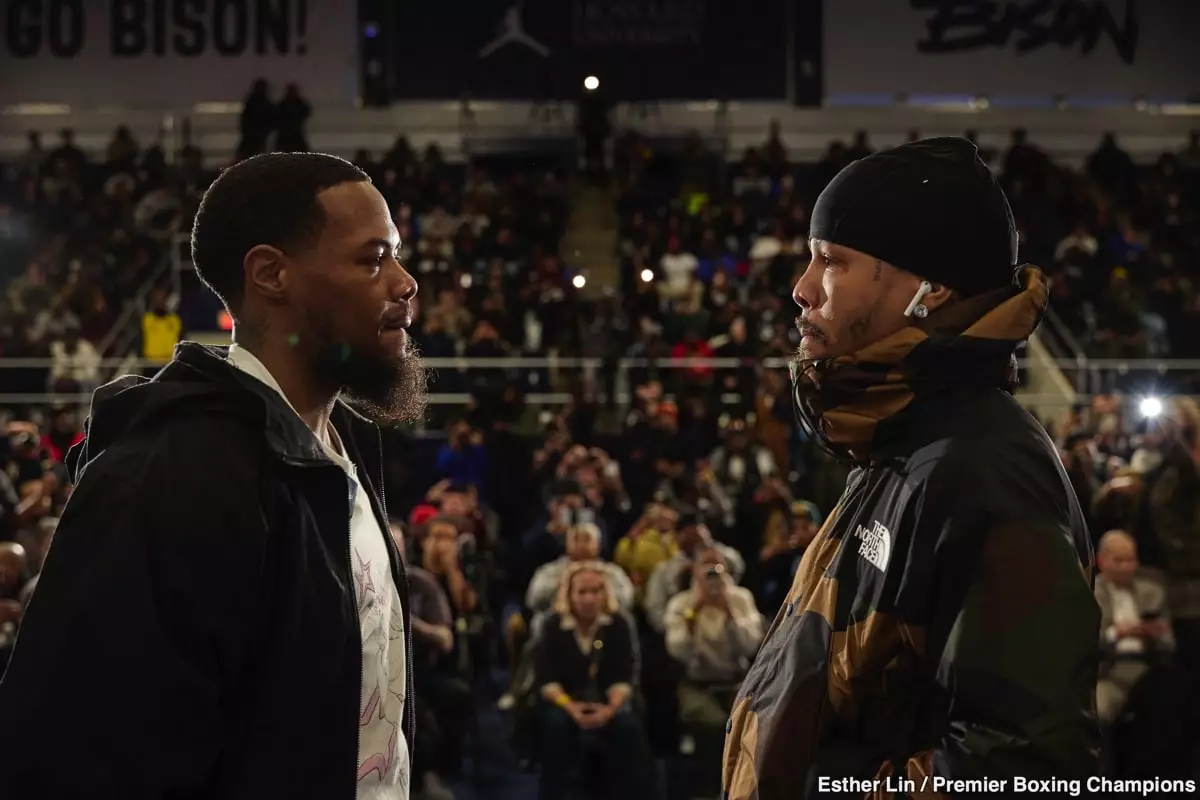Gervonta “Tank” Davis, the WBA lightweight champion, has stirred considerable buzz in the boxing world with his recent Instagram announcement regarding the cancellation of his highly anticipated title defense against Lamont Roach, originally slated for March 1st. Davis’s blunt message—“The fight is f*** cancel”—has left fans and commentators alike abuzz. Although some fans may be celebrating the drop of what many deemed an underwhelming matchup, the implications surrounding this cancellation shed light on deeper issues within the sport and the boxers involved.
The general sentiment surrounding the fight had been far from positive since its announcement. Social media quickly became a platform for fans to express their discontent with the matchup, citing Roach’s lack of star power and excitement as reasons for their negative feelings. It is important to recognize how modern-day marketing and promotion in boxing require matchups to not only have competitive merit but also an appeal that draws in fans beyond local affiliations. The initial glee over the cancellation is indicative of a broader trend—fans are growing increasingly critical and selective, demanding electrifying clashes instead of mediocre contests that don’t capture their imagination.
Davis, who boasts an impressive record of 30 wins and 28 knockouts, finds himself at a crucial juncture in his career. His off-handed remark hints at frustration, perhaps stemming from the mounting pressure to deliver fights that resonate with a wider audience. Marketability is as crucial as skill in boxing; without enticing matchups, fighters can quickly lose relevance. The notion that Davis is planning to retire after three more fights adds a layer of urgency. While this can create a “must-see” dynamic, it also raises questions about his desire to take on the sport’s elite rather than opting for safer, less challenging bouts.
The involvement of promotional entities like Premier Boxing Champions raises questions about the dynamics in boxing matchmaking. It seems Roach is left in limbo with no confirmation on the cancellation, leading fans to speculate whether it was a ploy by Davis to ignite further drama or actual business decisions at play. This ambiguity often frustrates fans yearning for transparency. It poses challenges for both fighters, as engagement levels can fluctuate dramatically based on the perceived excitement of proposed matchups.
In light of the current scenario, the lightweight division finds itself in a delicate balance. Gervonta Davis’s choice of opponents—often deemed lower-tier within the division—risks overshadowing the potential for high-profile bouts with better-recognized fighters. Boxing thrives on rivalry, legacies, and the emotional stakes that come with ambitious challenges. It is crucial for Davis to reconsider whether he wants to be seen simply as a regional draw or as a respected champion who competes in bouts that fans worldwide will anticipate.
As the dust settles on this cancellation, one thing remains clear: boxing fans crave excitement, competition, and stories worth following. Gervonta Davis, along with promoters and other fighters, must heed this call if the sport is to recover from its current malaise. Competitive, intriguing matchups are essential for propelling the future of boxing and securing its legacy. In a time where fan engagement can make or break a fighter’s relevance, Davis must either evolve or risk fading into the fabric of forgotten titles and fights that didn’t resonate.

